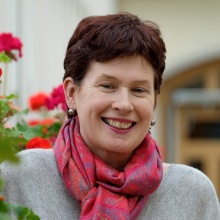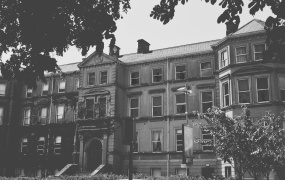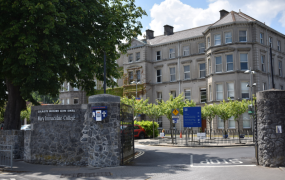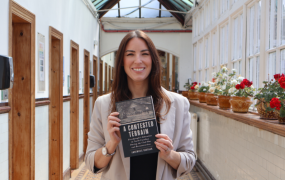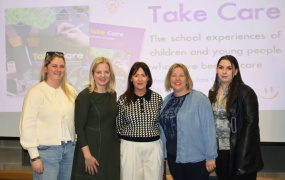Irish Institute for Catholic Studies
About
Situated within Mary Immaculate College, a third level Catholic College of Education and the Liberal Arts, the Irish Institute for Catholic Studies is a cross-faculty, interdisciplinary, research-oriented and community engaged network of scholars involved in the study of Catholicism and its contribution to culture and society in Ireland and beyond.

Our Aims
Our Mission
The IICS is an interdisciplinary research centre inspired by and in critical dialogue with Catholic culture and thought. We explore the long and rich Catholic tradition in a spirit of scholarly rigour and academic freedom. We engage with the intellectual contribution of Catholicism to philosophical, theological, educational and social debates, past and present, as well as the expression and embodiment of a Catholic sensibility in fine arts, literature, architecture and music. We engage with contemporary global realities and are dedicated to research and dialogue in the following key areas:
- Social & environmental justice
- Catholic Theology
- The Arts & Culture
- Catholic Religious Education
Our Aims
- Promote interdisciplinary, high-quality academic research related to Catholic Studies.
- Contribute to historical, intellectual, philosophical and theological understandings of Catholicism as a religion and social movement with a focus on the common good and human dignity.
- Contribute to the academic understanding of Catholic identity through our focus on social justice and sustainability.
- Disseminate knowledge of Catholics and Catholicism through publications, conferences, public lectures, symposia, and public dialogue.
The Irish Institute for Catholic Studies runs a popular public lecture series on Microsoft Teams. Stay updated with our 2021-2022 schedule of free public events on the IICS Twitter page.
If you wish to sign up for our mailing list, please email our Research Assistant at: Carleigh.Garcia@mic.ul.ie
Connect with us on Twitter, YouTube, and Instagram. IICS Shortlink: www.mic.ie/iics.
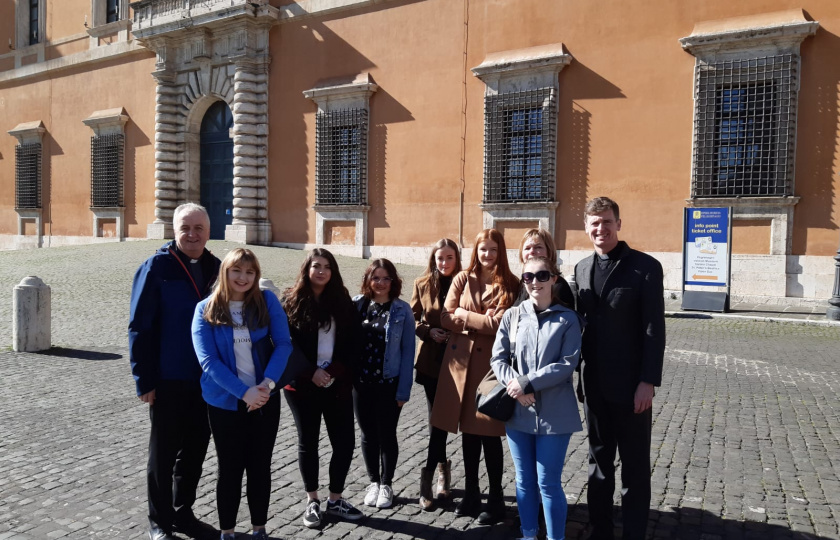
People
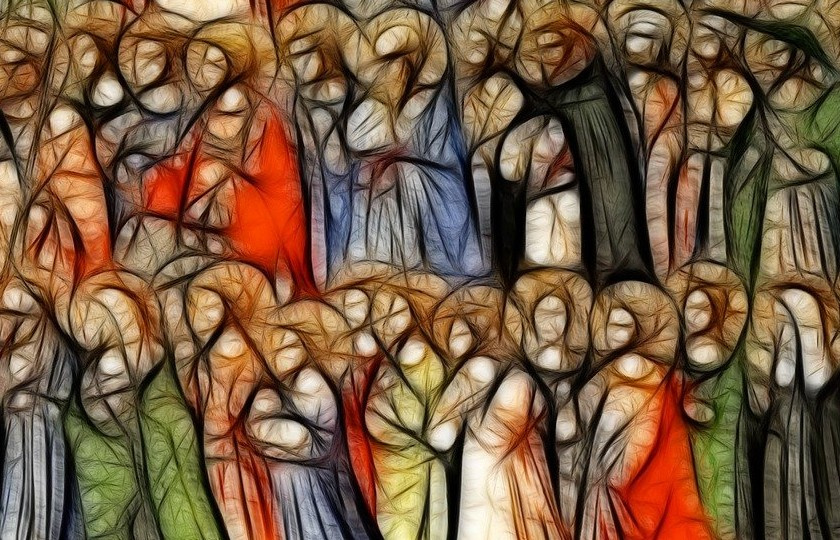
Director: Dr Patricia Kieran
IICS Research Assistant: Carleigh Garcia
IICS Visiting Professor (2021-2024): Professor Liam Gearon, Oxford
IICS Visiting Professor (2021-2024): Professor Marc Hight, Hampden-Sydney College
IICS Visiting Professor (2021-2024): Professor Marie Parker-Jenkins, University of Limerick
IICS Visiting Professor (2021-2024): Professor David Torevell, Trinity and All Saints, Leeds
IICS 2021 Doctoral Award Recipient: Dr Teresa O'Donnell
IICS 2023 Doctoral Award Recipient: Sean Barry
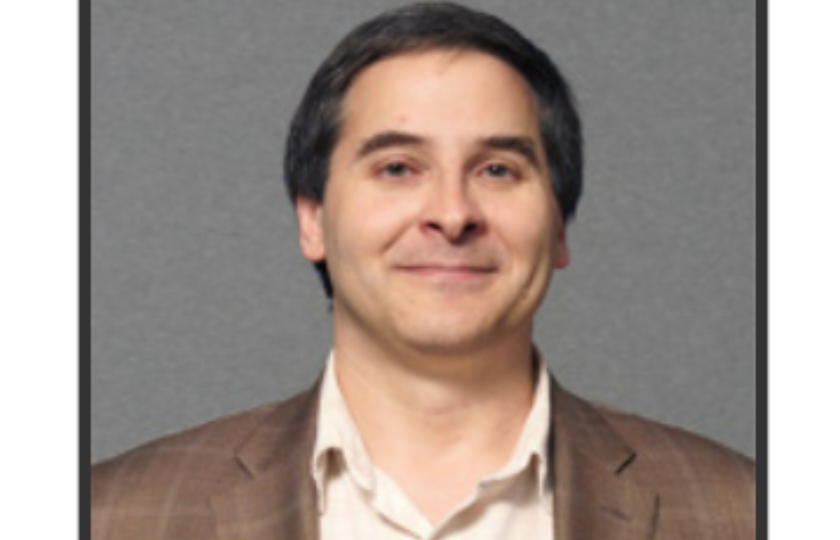
IICS Associate Members
- Professor Stephen Mc Kinney, Glasgow University
- Professor Susan Docherty, Newman University
- Professor Paul Murray, Durham University
- Professor Elżbieta Osewska, UKSW Poland
- Professor Martin O’Kane, Lampeter University
- Professor Liam Gearon, University of Oxford
- Professor John Sullivan, Liverpool Hope University
- Dr Ros Stuart-Buttle, Liverpool Hope University
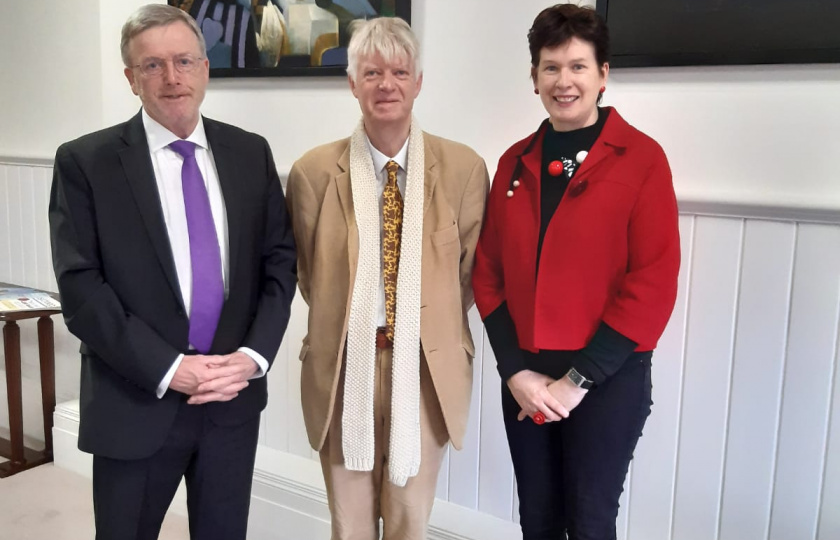
Research & Opportunities

IICS’s Focused Areas of Interest
The IICS is a network of scholars involved in the study of Catholicism & its contribution to society. We are focused on the following four areas:
A) The IICS promotes interdisciplinary research related to Catholic Studies. Our guest lecture speakers includes expert speakers on fine arts, literature, theology, education, music, social justice etc.
B) To further students’ understanding of Catholic Studies, we facilitate students guided tours of local (Hunt Museum), national (Chester Beatty) and international (Vatican Museum) Museums’ wonderful collections of religious art.
A) The IICS explores Catholic social teaching and is concerned with the promotion of human rights, climate change and the dignity of the human person.
B) To promote social justice, the IICS is involved in research focusing on inter-religious dialogue, the voice of the child in education as well as climate justice. It also promotes action for justice through engagement with a number of organisations concerned with homelessness, those in Direct Provision and socially and educationally disadvantaged groups.
A) Located in a third-level higher education institution, Mary Immaculate College, the IICS is interested in promoting the education of Catholic Studies scholars and establishing an interdisciplinary ‘Catholic studies’ stream in the postgraduate taught programmes of the College, and postgraduate research. We conduct seminars for researchers interested in exploring the Catholic element of their diverse research interests.
B) We foster interdisciplinary scholarly research among scholars. Our expanding database encourages networking and research collaboration. We focus on making such research accessible through seminars, public lectures and on-line resources.
A) The IICS recognizes the importance of the environment and its protection. Conscious of our effect on the environment, the IICS attempts to promote and educate people about climate justice.
B) We take Third Level students on a voluntary Soul Safari, on a day retreat to the sea, to relax and meditate in nature, with an optional Catholic element of spending time with a trained Spiritual Director.
The Irish Institute for Catholic Studies is compiling a database of interdisciplinary research to disseminate academic research on Catholic culture and thought. Please contact IICS directly if you wish to contribute to this database.
- Hickey, I. & Howley, E. (2023) Seamus Heaney's Mythmaking, Routledge.
- Hickey, I. (2022) 'Heaney, Catholicism and the Hauntological: The Later Poetry' in The Brazilian Journal of Irish Studies.
- Hickey, I. (2022) 'Overthrowing Societal Norms Through the Spoken Word: Benjamin Zephaniah's Dub Poetry in City Psalms' in Lucy English and Jack McGowan (eds.,) Spoken Work in the UK, Routledge.
- Hickey, I. Haunted Heaney: Spectres and the Poetry, Routledge.
- Hickey, I. ‘Virgilian Hauntings in the Later Poetry of Seamus Heaney’ (2018) in Estudios Irlandeses, Issue 13. pp. 27-40.
- Hickey, I. ‘The Haunted Bog and the Poetry of Seamus Heaney’ (2018) in Nordic Irish Studies, Volume 17, Number 2. pp. 35-54.
- Hickey, I. ‘Elegising the Past and Future: Seamus Heaney’s “Route 110” Sequence’ (2019) in Irish University Review, Volume 49, Number 2. pp. 340-355.
- Hickey, I. ‘“The old cause is never dead”: Hauntology and Brendan Behan’s The Hostage’ (2020) in Irish Studies Review, DOI: 10.1080/09670882.2020.1742461.
- Hickey, I. ‘“Dublin You Are”: Representations of Dublin in Twenty-First Century Irish Poetry’. (2020) in C21 Literature: Journal of Twenty-First Century Writings. DOI:
https://doi.org/10.16995/c21…. - Hickey, I. ‘Derrida, Heaney and the Translation of Virgil’s Aeneid Book VI’ in Études Irlandaises. .
- Kieran, P. & Mullally, A. (2022) 'Blending Catholicism with Chi, Chakras and Crystals: Research on the Lived Reality of Catholicism among Pre-Service Postgraduate Student Teachers in Catholic Third Level Colleges in the Republic of Ireland (roi)', Ecclesial Practices.
- Kieran, P. and Mullally A. (2021) 'Beyond belief? Pre-service teachers' perspectives on teaching RE in Ireland. A Journal of Religious Education, Vol 69/3, pp. 423-437. DOI 10.1007/s40839-021-00153-7
- Kieran, P. (2021) 'The World's Religious and Global Climate Disruption' in Dolan, A. (ed.) Teaching Climate Change in Primary Schools: An Interdisciplinary Approach. London: Routledge.
- Patricia Kieran & John Mc Donagh (2020) British Journal of Religious Education Vol. 40 No. 4. The centre cannot hold: decolonising the RE curriculum in the Republic of Ireland
- Patricia Kieran & Aiveen Mullally (2020) Covid-19 A Watershed for the Catholic Church, Doctrine & Life, Vol. 70 No. 7, pp. 2-10.
- Patricia Kieran, Marie Parker-Jenkins & Anne Ryan (2020) Religions and beliefs in changing times: perspectives of student stakeholders in third-level educational contexts in the republic of Ireland and Northern Ireland, British Journal of Religious Education Religions and beliefs in changing times: perspectives of student stakeholders in third-level educational contexts in the republic of Ireland and Northern Ireland
- Kieran, P & Mullally, A. (2020) ‘The new ‘nones’: the implications of ticking the ‘No Religion census box for educators in Ireland’ in The Furrow, July/August, pp. 387-395.
- Kieran. P. (ed.) (2019) Connecting Lives: Inter-belief Dialogue in Contemporary Ireland. Dublin: Veritas. pp. 309 ISBN 9781847307613 https://www.veritasbooksonline.com/connecting-lives-9781847307613-27455/
- O’Donnell, A., Kieran, P., DCherouvis, S., Bergdahl, L., with Langmann, E. (2019) The Enquiring Classroom: Values, Identity, Exploration. Erasmus + http://nebula.wsimg.com/b34a2e21e05d30983c68342cf6de3918AccessKeyId=C0264DFDC5E0FBB4FF37&disposition=0&alloworigin=1
- Garcia, C. (2022) 'Shamrock Social Norms: Security, Catholicism, and Shame', Alluvium Journal.
- Garcia, C. (2022) 'Catholic Shame and Female Blame: Edna O'Brien and The Country Girls Trilogy', The Furrow.
Opportunities
There are many Catholic Universities, centres and organisations around the world where Catholic scholarly research, education and pastoral initiatives are being undertaken. See A-Z list of countries followed by other useful links.

- Catholic Institute of West Africa, Port Harcourt
- Catholic University College of Ghana
- Catholic University of Eastern Africa
- St Augustine College of South Africa, Johannesburg
- St. Augustine University of Tanzania, Nyegezi & Malimbe
- Uganda Martyrs University, Nkozi
- University of the Sacred Heart Gulu, Gulu
- Pontifícia Universidade Católica de São Paulo, São Paulo, SP
- Universidade Catolica de Brasilia, Brasilia, DF
- Universidade Santa Úrsula, Rio de Janeiro, RJ
- John Paul II Pontifical Theological Institute for Marriage and Family Sciences
- Massimiliano Massimo Institute
- Pontifical Biblical Institute
- Pontifical Lateran University
- Pontifical Oriental Institute
- Pontifical University of the Holy Cross
- Pontifical University Antonianum
- Pontifical University Irlandese
- Pontifical Athenaeum Regina Apostolorum
- Pontifical University of Saint Thomas Aquinas
- Salesian Pontifical University – Rome, Turin & Jerusalem
- Jesuit University of Philosophy and Education Ignatianum, Kraków
- John Paul II Catholic University of Lublin, Lublin
- Pontifical Faculty of Theology in Warsaw, Warsaw
- Pontifical Faculty of Theology in Wroclaw, Wroclaw
- Pontifical University of John Paul II, Kraków
- UKSW Poland
- University of Opole Faculty of Theology, Opole
- Marino Institute of Education
- Mary Immaculate College
- Mater Dei Centre, Dublin City University
- MIC St Patrick’s Campus, Thurles
- Spirituality Institute for Research and Education
- St Patrick’s College, Maynooth
- The Priory Institute
- The Loyola Institute,Trinity College Dublin
- Aquinas College, Stockport
- Carmel College (St Helens)
- Digby Stuart College
- Durham University
- Glasgow University
- Holy Cross College
- Lampeter University
- Leeds Trinity University
- Liverpool Hope University
- Loreto College, Manchester
- Margaret Beaufort Institute of Theology
- Maryvale Institute
- Newman University, Birmingham
- St Mary’s University, Twickenham
- University of Oxford
- Xaverian College
- Avila University
- Benedictine College
- Boston College
- Catholic University of America
- College of Saint Benedict
- College of the Holy Cross
- Creighton University
- DePaul University
- Duquesne University
- Fairfield University
- Fordham University
- Gannon University
- Georgetown University
- Gonzaga University
- John Carroll University
- Loras College
- Loyola Marymount University
- Loyola University, Maryland
- Loyola University, New Orleans
- Loyola University, Chicago
- Manhattan College
- Marquette University
- Mount Saint Mary’s University – California
- Notre Dame University
- Providence College
- Regis University
- Rockhurst University
- Saint Edward’s University
- Saint John’s University – Minnesota
- Saint Louis University
- Saint Mary’s College – Indiana
- Saint Mary’s College of California
- Saint Joseph’s University
- Santa Clara University
- Seton Hall University
- Seattle University
- Spalding University
- St. Bonaventure University
- St. John Fisher College
- St. Mary’s University – Texas
- St. Norbert College
- Stonehill College
- University of Dallas
- University of Dayton
- University of Detroit Mercy
- University of Portland
- University of San Diego
- University of San Francisco
- University of Scranton
- University of St. Thomas – Minnesota
- University of St. Thomas – Texas
- Villanova University
- Xavier University
- ACCU Association of Catholic Colleges and Universities
- ACI Association of Catholics in Ireland
- ACP Association of Catholic Publishers
- ACT Association of Catholic Teachers
- ACE Alliance for Catholic Education
- Association of Catholic Priests Ireland
- Association of Catholic Tertiary Students - Johannesburg
- AMRI Association of Leaders of Religious and Missionaries in Ireland
- Catholic Leadership Institute
- Cafod Catholic Agency for Overseas Development - UK
- Catholic Education Association of the Philippines
- Catholic School Partnership (CSP) - Ireland
- CTA USA
- International Network of Societies for Catholic Theology (INSeCT)
- European Society of Catholic Theology
- Inclusive Catholic Education
- NCEA National Catholic Education Association - USA
- National Catholic Partnership on Disability
- The Priest’s Initiative Austria
- Trocaire Irish Overseas Development Agency of the Irish Catholic Church
- USCCB United States Conference of Catholic Bishops
- Catholic Theological Ethics in the World Church
- Frances G. Harpst Center for Catholic Thought and Culture - University of San Diego
- Irish Catholic Bishops’ Conference
- Pobal Dé - People of God - Ireland
- We are Church - Ireland
- BBI The Australian Institute of Theological Education
- Catholic Centre Hong Kong
- Centre for Catholic Studies, Durham University
- Catholic Education Special Interest Group of the American Educational Research Association
- Von Húgel Institute for Critical Catholic Enquiry - University of Cambridge
- Las Casas Institute Oxford Catholic Social Teaching & Theology
- Las Casas Institute for Social Justice
- Irish Institute for Pastoral Studies
- Mater Dei Centre for Catholic Education - DCU
- Nagasaki Catholic Centre - Japan
- The Institute of Catholic Culture - USA
- Institut Catholique de Paris
- Alive! Irish Monthly Catholic newspaper
- Catholic Communications Office
- Catholic Ireland.Net
- Dicastery for Communications
- I-Catholic multimedia player
- Intercom Catholic Pastoral and Liturgical Resource
- Irish Catholic
- L’Osservatore Romano
- NCR National Catholic Reporter - USA
- Pope Francis Twitter @Pontifex
- The Furrow - Journal for the Contemporary Church
- The Tablet - International News and Opinion
- Vatican News
2025 IICS Lecture Series & Events
Catholic Studies in Ireland: Challenging, Constructive & Critical Voices Seminar
This seminar will explore a wide range of themes related to Catholic Studies in Ireland, including art and architecture, cultural studies, education, gender studies, history, Irish language, literature, media, medicine, music, philosophy, politics, science, sociology, sports and theology.
- When: 21 May 2025
- Where: Mary Immaculate College, Limerick
Keynote Speaker: Professor Fáinche Ryan (TCD) on ‘The Book of Kells and the Theology of the Early Irish Church’.
| 9.30am - 10am: Tea/Coffee on arrival and sign in Room: G10 |
| 10am - 10.10am: Welcome by Professor Dermot Nestor, President of MIC Room: G10 |
| 10.10am -10.25am: Opening Taize Meditation led by Dr Teresa O’Donnell Room: G10 |
| 10.30am - 11.10am: Keynote by Prof. Fáinche Ryan (TCD), The Book of Kells and the Theology of the Early Irish Church Room: G10 |
| 11.10am -11.25am: Q&A chaired by Dr Patrick Connelly |
| 11.30am - 12.45pm: Morning Parallel Paper Sessions in 4 Breakout Rooms as outlined below. |
|
Morning Parallel Paper Session 1
|
|
Morning Parallel Paper Session 2
|
|
Morning Parallel Paper Session 3
|
|
Morning Parallel Session 4
|
| 12.45-1.45 Lunch in MIC Canteen |
| 1.45pm - 3pm: Afternoon Parallel Paper Sessions in 3 Breakout Rooms as outlined below. |
|
Afternoon Parallel Paper Session 1
|
|
Afternoon Parallel Paper Session 2
|
|
Afternoon Parallel Paper Session 3
|
| 3pm - 3.20pm: Catholic Studies in Ireland Room: G10 |
| 3.20pm - 4pm: Keynote by Professor Liam Gearon Room: G10 |
| 4pm: Book Launch - The Oxford Handbook of Religion and Education (2025), followed by refreshments. Room: G10 |
| For more about Catholic Studies Seminar and keynote speakers, click here. |
The Irish Institute for Catholic Studies (IICS) at Mary Immaculate College is delighted and honoured to welcome researchers, academics, educators, postgraduate students and members of the public to a one-day seminar on Catholic Studies in Ireland. The seminar ‘Catholic Studies in Ireland: Challenging, Constructive and Critical Voices’ title showcases contemporary interdisciplinary research on the nascent academic area of Catholic Studies in Ireland. As an interdisciplinary area, Catholic Studies is in critical dialogue with the intellectual contribution of Catholicism to philosophical, theological, educational, and social debates, past and present. It critically explores the expression and embodiment of Catholic themes and sensibility in various subjects, including fine arts, literature, architecture, media, and music. Further, this Catholic Studies seminar explores the ancient and diverse Catholic tradition and its impact on life in Ireland, past and present, in a spirit of scholarly rigour and academic freedom.
This Catholic Studies seminar is delighted to host two keynotes: one by Professor Fainche Ryan (TCD) on the Book of Kells, one of Ireland’s most remarkable artistic, religious, and historic treasures, and another by Professor Liam Gearon (Oxford) on Enlightenment’s Empire and Apocalyptic Modernity: Religion and Education Revisited, which involves a re-evaluation of the Enlightenment’s all pervasive critique of religion.
The Catholic Studies Seminar aims to create a welcoming, hospitable space for dialogue that reflects the wide spectrum of perspectives on Catholicism in Ireland and divergent interpretations of its impact on social and cultural life in historic and contemporary Ireland. It features over 25 short papers from scholars who present and discuss exciting and emerging research in the field. The seminar aims to foster dialogue across diverse disciplines that contribute to Catholic Studies, while connecting contemporary and historical issues. Papers will explore the intersections of Catholicism with cultural, social, and religious contexts, events and ideas. The range of disciplines represented in this seminar includes education, history, Irish language, literature, philosophy, theology and inter-religious dialogue. The seminar will provide participants with an exciting opportunity to reflect critically on the place of Catholicism in Ireland’s academic, cultural and social landscape.
Patricia Kieran
Associate Professor Associate Professor in Religious Education Learning, Society & Religious Education (LSRE) Director, Irish Institute for Catholic Studies (IICS)
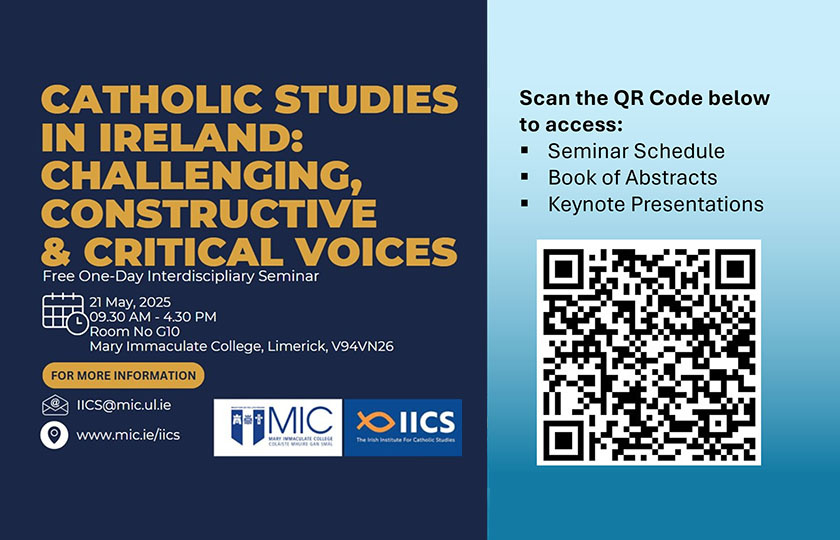
Annual MIC Soul Safari Staff Retreat
FREE Annual MIC Soul Safari Staff Retreat
- Theme: Peace & Hope
- When: Friday, 6 June 2025, 10am - 4pm
- Where: HolyCross Abbey, Cabragh Wetlands & Thurles Campus
By Dr Nora Donnelly
Attendees will have the chance to read the scripture visually.
- Date: Monday 7 April 2025
- Time: 1 pm
- Where: Mary Immaculate Chapel
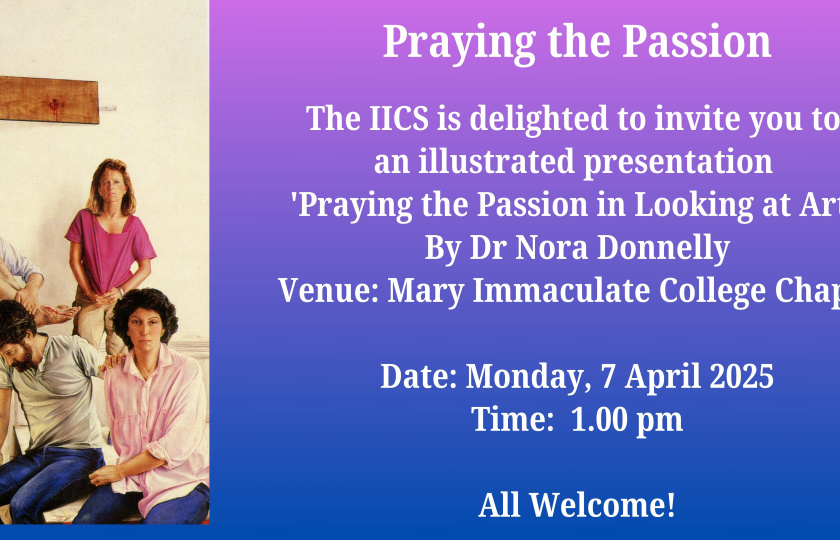
By Dr Catherine Swift
Attendees discovered that, indeed, St Patrick came to Mary I.
- When: Thursday 6 March 2025
- Where: T115, Mary Immaculate College, Limerick
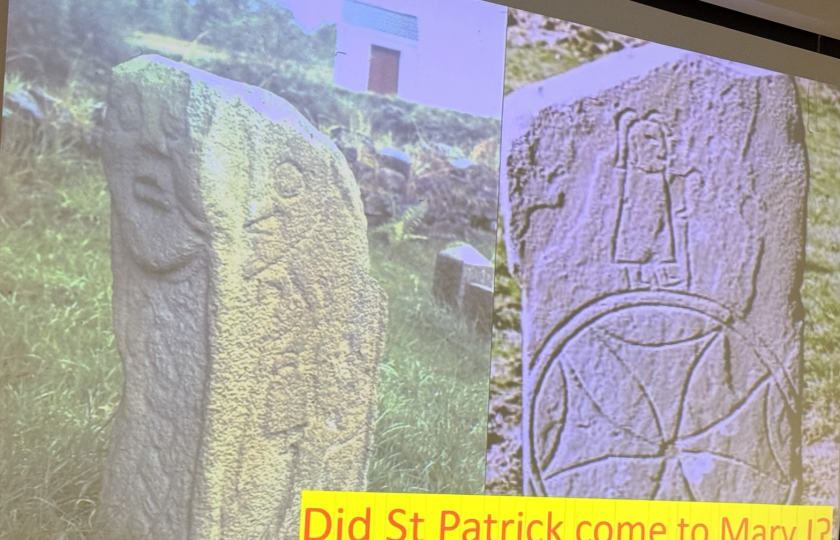
By Dr John McDonagh
Attendees learned about Kennelly's depiction of doubt, scepticism, and the quest for personal spirituality.
- When: Thursday, 13 February 2025
- Where: JHN 221, Mary Immaculate College, Limerick
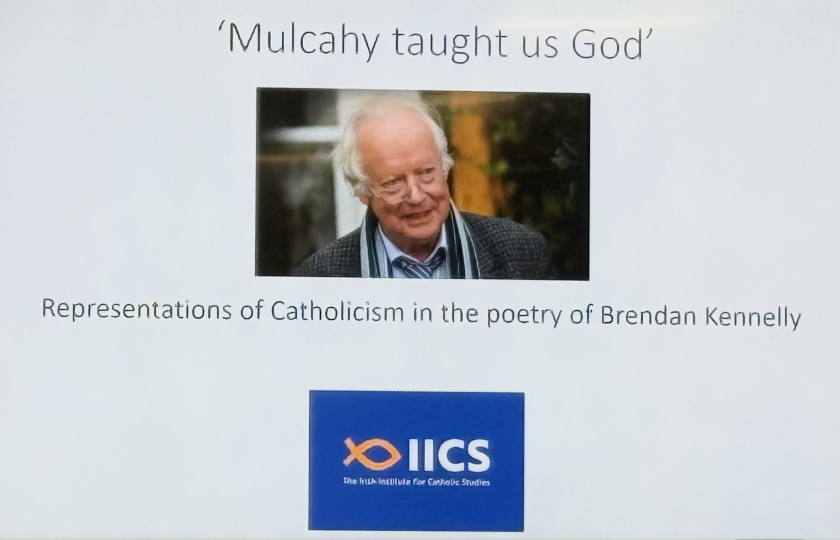
Past IICS Lecture Series & Events
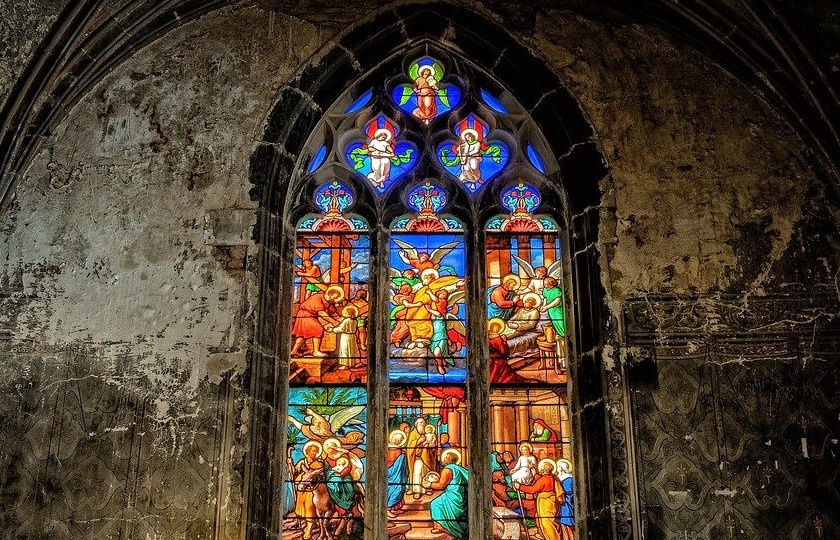
To promote interdisciplinary research and contribute to historical, intellectual, philosophical, and theological understandings of Catholicism as religion, social movement, body of thought, and material culture, we have established a lunchtime and evening lecture series. Many of our past lectures can be found on our YouTube channel.
Other events the IICS hosts include Dialogue Cafes, film screenings, staff retreats, and fieldwork. If you are interested in our events, please email carleigh.garcia@mic.ul.ie.
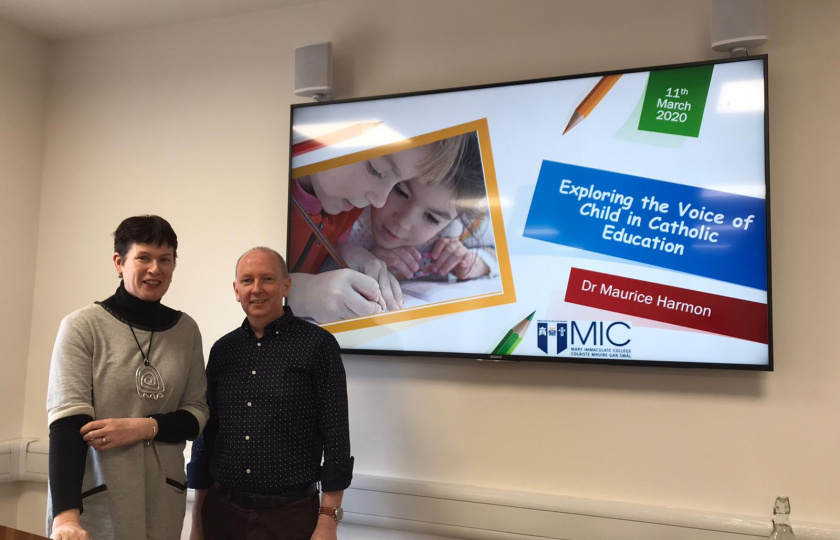
Lecture Series
- Paul Corcoran, Trinity College Dublin, 'Wonder in Education: beyond the 'tedious monotony' - 1pm March 13th in T1.15
- Mary McAleese, 'On being a Catholic' - 6pm March 20th in T1.18
- Catherine Corless, 'Mother and Baby Homes in Ireland' - 1pm Arpil 10th in T2.07
- Dr Maria Bargo, 'Catholic poverty alleviation efforts in Argentina: The Case of Opus Dei' - 3pm April 17th online
- Prof Liam Gearon, Oxford University, 'Religion, Education and Postcolonial Theory: Decolonising the Curriculum Reconsidered'
All are welcome to our series. Thank you for your support! For Dr Maria Bargo's lecture, please email carleigh.garcia@mic.ul.ie for the MT link.
Mary McAleese Event
We are delighted to welcome Mary McAleese to MIC on March 20th. She will speak with Dr Patricia Kieran 'On being a Catholic' at 6pm in T1.18. Please register if you are attending this event to the President's Office, as we expect large numbers. Thank you! All are welcome.
Mary Mc Aleese served as Ireland’s eight President for 14 years from 1997-2011. She is the first President to come from Northern Ireland and the first female president to succeed a female president in Ireland.
Mary was born in Belfast and after school she studied Law at Queen’s University, Belfast. In 1973 Mary was called to the bar of the Inn of Court of Northern Ireland and the King's Inns Dublin. In 1975, she was made Reid Professor of Criminal Law, Criminology and Penology at Trinity College Dublin. Mary is currently Chancellor of Trinity College Dublin. She holds a Doctorate and Licentiate in Canon Law from the Pontifical Gregorian University Rome and a Master’s Degree in Canon Law from the National University of Ireland (Milltown Institute). She is a member of the Council of Women World Leaders. In 2018, she was appointed Professor of Children, Law and Religion at the University of Glasgow.
Research Seminar
Research TRS-RE Symposium in MIC Thurles on 29th May
10.00-10.30 Tea/Coffee on arrival in Staff Lounge
10.30-11.00 Tour of Croke Library (Ruth Talbot)
11.00-12.30 Seminar with Prof Liam Gearon in Boardroom
12.30-13.00 Introduction to The Saint John's Bible (Dr Jonathan Burroughs) in Chapel
13.00-14.00 Lunch 14.00-16.00 Dialogue in Board Room
Podcast News
Dr Jonathan Burroughs and Dr Patricia Kieran are conducting podcast interviews this spring. More information to come!
Fluidly Faithful? Catholic Education and the Institutional Church
MIC hosted the Network for Researchers in Catholic Education Annual Conference (October 2023), in partnership with the Irish Institute for Catholic Studies and the Catholic Association of Teachers, Schools, and Colleges.
Conference Theme: Fluidly Faithful? Catholic Education and the Institutional Church
Our Padlet page will give you more information about the conference. It was a great success, and we thank all who contributed.
Please contact Carleigh Garcia at carleigh.garcia@mic.ul.ie or Patricia Kieran at patricia.kieran@mic.ul.ie for general inquiries about the conference.
'Credible Christian Communication Today'
The IICS is grateful for the wonderful, international contributions made to the 2021 IICS Conference. If you would like to view recorded keynotes and papers from the conference, you can access them on our IICS YouTube channel. More information can be found on our padlet page.
2021 Lecture
- Welcome by Dr Patricia Kieran, Director of the IICS
- Introduction by Prof Eugene Wall, President of MIC
- Speaker: Dr Austen Ivereigh, 'The Spirit and the People: The sources of Pope Francis's dream of a synodal Church'
Please click here to watch 2021 event on our YouTube channel.
2020 Inaugural Lecture
- Welcome by Dr Patricia Kieran, Director of the IICS
- Introduction by Profesor Eugene Wall, President of MIC
- Speaker: IICS Visiting Professor, Professor Liam Gearon, Oxford University
- Respondent: Professor Anthony Towey, St. Mary’s University
Please click here to watch 2020 event on our YouTube channel.
The Mid-West Sikh Community, in collaboration with Limerick City & County Council and Mary Immaculate College, has planned a number of events to commemorate the life of Limerick native Max Arthur MacAuliffe. Postponed until future notice.
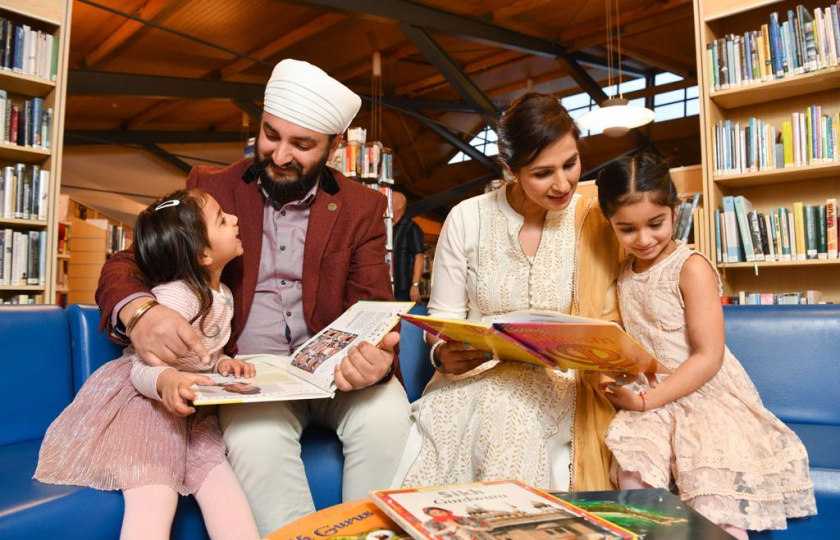
Blog
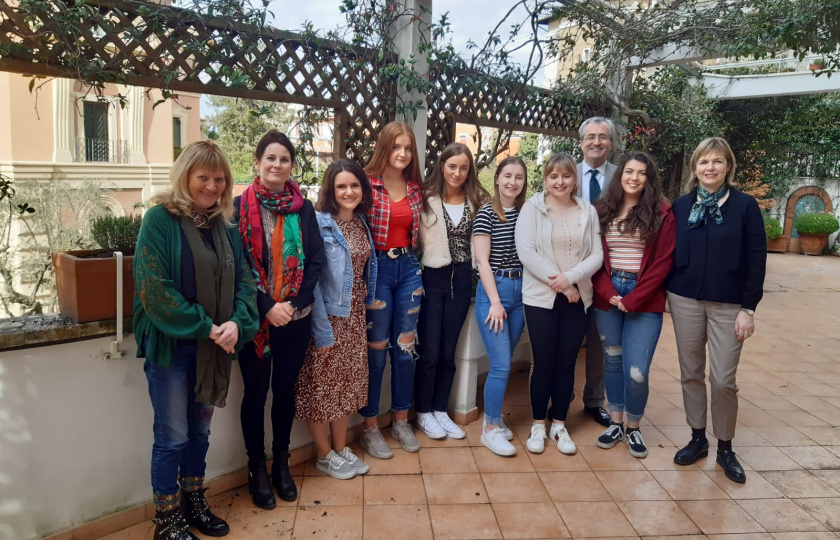

Religiosity of Black Lives Matter Movement
More than 150 people across Ireland, last Saturday, attended an online candlelight vigil to honour the memory of murdered African Irish man, George Nkencho. He was shot and killed by armed gardai in an incident that involved a kitchen knife. His killing, outside his family home in Dublin on 30 December 2020, led to anger and outrage by many, especially the black community in Ireland. Following this, protesters gathered for several days outside the Blanchardstown Garda station to demand for justice.
Mr Nkencho had no previous conviction, and his killing was a bitter recall of the armed gardai shooting of John Carthy, outside his family home in Abbeylara, Co. Longford, in April 2000. Also, both Nkencho and Carthy were 27 years old and suffered from psychiatric illnesses at the time of their killings. It was, however, another recent murder that held an eerie aura of the death of Nkencho.
In May 2020, unarmed African American man, George Floyd, was killed under the knee of a white American police officer in Minneapolis, America, because he allegedly used a $20 counterfeit bill. Just like one could scarcely miss the first-name similarity of the two murdered men and their killers, one could only just ignore the outcomes of their killings.
The murder of Floyd resulted in an avalanche of global condemnation and brought a new chapter of attention to racism. Similarly, the killing of Nkencho brought back to centre stage, the voices of Black Lives Matter (BLM) in Ireland. This movement started in America as a hashtag on social media in 2012 and has now grown worldwide and takes different dimensions in different countries. In Ireland, for example, many activists use it to condemn racism, but, also, Direct Provision - a system that accommodates asylum seekers in the Republic of Ireland.
In the case of the death of Nkencho, protesters and BLM activists again raised many concerns, including racial bias and profiling of black people by gardai, and systemic racism in Ireland in general. They wept, knelt, and marched in protests, but also importantly, they prayed in protests. Prayer and fasting initiatives for the healing of the family of Mr Nkencho were organised among black communities across Ireland and one could be forgiven for thinking this was the first-time prayers were pivotal at protests organised by BLM. Just recently, prayers were a regular feature throughout the Floyd protests in America, United Kingdom, Ireland and many parts of the world, and few people will disagree that this is integral to BLM.
During the January 30th vigil to remember George Nkencho, members of the Network of African Irish Leaders in Ireland, singers and audiences paid loving tributes to him, but the prayer portion of the event stood out. There were several languages, including tongues spoken in a prayer by Pastor Tosin Poopola of the Redeem Church. The prayers were so powerful they palpitated in the galaxy, and as the Bible states: “for anyone who speaks in a tongue does not speak to men but to God” (1 Corinthians 14), in that moment, a prophecy of healing was declared on the Nkencho’s, and the black community in general.
I argue that this aspect of the struggle – prayers – makes BLM a unique liberation movement, and it is easy to see why. Most of the recent BLM protests address the theme of death. One may argue that most people tend to seek the face of God during crisis, sad, traumatic, and violent end to life. That is true. There is, however, a distinctive way black people pray, and in America, as well as most parts of the world where Africans are present, their struggle for equality and justice is also fought through prayers that very often include chants, and weeping. Their practical testimonies are cemented in the hope that alongside protests, “God will make a way where there seems to be no way” (Isaiah 43:19). Even for some non-believers, this belief can uplift and elevate one’s faith in the omnibenevolent.
This grip of prayers in the African struggle for liberation is not new. This is present in African traditional religions where there is profound trust in the protective powers of gods and ancestors; present in the era of colonisation that brought about a new God and a new way of worship to Africans; and, the transatlantic enslavement of Africans when the sufferings, and stench of death of mainly black slaves smelled everywhere.
Back then, slave masters used Christianity to make blacks better - “obedient and docile” (Cone 2008, pp 34-35) and to exert and solidify their control. On the other hand, slaves used the new way of worshipping to also learn how to break their chains of bondage. Take for example, Dr Martin Lurther King – one way in which he became so impactful was “his relationship with God in Christ” (Scruggs 2012). Till this day, this powerful history inspires many black people to assert religion and prayers as formidable tools when seeking protection, liberation, justice, and freedom.
Though one does not have to be religious to pray, many activists of the BLM movement believe that they must be faithfully devoted to the cause and robustly prayerful for a future of inclusion, justice, and equality of all black lives.
References:
Cone, J. (2008) ‘Theological and Ethical Aspects’ in Fahlbusch, E. et al, The Encyclopedia of Christianity, (Volume 5), Michigan: Wm. B Eerdmans Publishing Company and Leiden: Koninklijke Brill.
Scruggs, J. (2012) ‘Foreword’ in King (Jr), M., "Thou, Dear God": Prayers that Open Hearts and Spirits, Massachusetts: Beacon Press, ix-x.
Contact:
Lylian Fotabong
PhD student in Applied Linguistics
Mary Immaculate College, Limerick
Lylian.Fotabong@mic.ul.ie
‘Sister Schools: The relationship between Regis University, Denver and Mary Immaculate College, Limerick, my Erasmus+ experience, and why students should participate in international exchange’
Regis University describes itself as ‘Colorado’s Catholic Jesuit University’, as it is the only Jesuit university in the Rocky Mountain West and one of the twenty-seven Jesuit universities in the United States (Regis University 2021). Though I may be biased, as I am originally from the Denver metro area, the mile-high city, truly located a mile above sea level, is a sunny (300 days of sunshine a year), culturally diverse, and outdoor-obsessed city. Denver places international students in the heart of America rather than at its peripheries like many major coastal universities more commonly chosen by international students do. When I asked a fellow Mary Immaculate College student (April 2022) why they chose to study at Regis rather than in New York, Boston, or California, they responded that they would spend a week at some point in one or more of those major locations, so why not be unique and discover parts of America typically forgone. That is not to diminish other areas of the United States, as I come from a country which is vast, and each state is significant and distinct. However, though Colorado is a landlocked state and not seen to be as appealing as one of the coasts, its capital and location of Regis, Denver, offers proximity to outdoor recreation, large city attractions and international flair. Even with these benefits, it is often the academic excellence offered by Regis that attracts students, and the holding of a Memorandum of Understanding between Regis and MIC only benefits students who are interested in studying at Regis, as it makes this process much easier. Studying abroad may be a stressful endeavour, as there are flights, finances, accommodation, and transferring of credits to concern oneself with, not to mention homesickness, but the independence, friendships, and gaining of a global perspective, along with life skills such as intercultural communication, adaptability, and problem solving, will only benefit a person overall in career opportunities and personal development. Studying abroad, in general, can result in these skills and experiences, but the values, intellectual tradition, and empathetic understanding of religion may only be gained through a university such as Regis.
Founded in 1877, as a Jesuit institution, Regis is heavily involved in social justice, with a mission to ‘build a more just and humane world through transformative education at the frontiers of faith, reason and culture’ (Regis University 2021). Previously located in New Mexico as the College of the Sacred Heart before moving to Colorado and being renamed Regis College, in honour of St John Francis Regis, in recognition of his ‘service to at-risk women and youth, providing them stable incomes and independence’, it helped pioneer education in Colorado (Regis University 2021). It has continued this legacy of helping those at the margins of society and educating Coloradans and beyond ever since. You do not have to be Catholic to attend Regis, but it is important to know that there are certain values which accompany a Jesuit education, inspired by the Jesuit founder St Ignatius Loyola, who believed in educating ‘men and women of all ages and faiths to take leadership roles and to make a positive impact in a changing society’, by encouraging the seeking out of truth, and always questioning ‘How ought we to live?’ (Regis University 2021). Students at MIC, a college historically dedicated to education, may find kindred spirits at a place like Regis where there is a deep commitment to teaching, learning, and research, all to help souls because they have found there is a no more powerful way to do this than through education. This concept of caring for souls, an emphasis of the Jesuits on caring for the person as a whole, is manifested at Regis in dedication to finding vocations for all students, not only in the religious sense but more broadly. They seek to inspire students to learn where and how they are drawn to commit themselves to something bigger than themselves, with the mindset of who do you want to be, rather than what do you want to do. To participate in international exchange is an opportunity to find yourself through the removal of your culture and value system, and expose yourself to an entirely different element and experience. If this is the case, what better environment to find oneself in than in a community committed to inspiring their students to find who they are in this world and how to make a broader impact?
One of the reasons I chose Regis as my host for Erasmus+ this past semester, was to learn of Colorado’s connection (indeed, if it had one at all) to Irish Studies and international exchange with Ireland. Regis formerly had a relationship with NUI-Galway for a certificate in Irish Studies, which ended seven years ago. I did not receive a clear answer to the reason behind the lapse in this relationship. However, the MOU Regis holds with MIC and the Institut Catholique de Paris for J-1 exchange students allows a flow of students between Regis and the two universities. Typically, Regis will send three to five students per year to Ireland – mainly to MIC or Maynooth, as those are currently the only locations in Ireland they have a relationship with. The most common students from Europe who study at Regis at this point are from Germany, Spain, and Italy, followed by Ireland. To strengthen the relationship between MIC and Regis, which has already been established, we could begin hosting joint virtual events to incentivize our partnership. Another option would be to directly market MIC’s dedication to education and excellent teaching program to Education majors at Regis. I drew their attention to the wonderful opportunity the Government of Ireland International Education Scholarship holds for graduating seniors, which is the main reason I began my postgraduate studies in Ireland and at MIC as an American.
This Spring on Regis’ campus, there was a buzz in the air as students post-Covid begin to return to normality. Though a welcoming and research-rich university, with more than 120 degrees and programs (Regis University 2021), unfortunately, it is still at risk of many of the challenges facing Catholic higher education institutions today. There are financial challenges of declining enrollments, which the pandemic contributed to, and the fact that there are many more public universities in Colorado than private, leading many to believe a public institution is a more viable option. It is also hard for people to take the dynamics of faith and reason seriously in a secular world. According to my interview with Regis’ Office of Mission (March 2022), there are predictions that in ten years institutions like Regis will not survive. As one of the few Catholic higher education institutions remaining in Ireland, many of these areas of concern are well known to those at MIC. Despite being Catholic and private being some of the reasons one should be concerned for its survival, these are also what result in Regis’ unique values and intellectual traditions which should be preserved. Regis provides students with an opportunity to become educated, yes, but also to transform their ‘education into something greater’, to question everything, even morality, and ‘extend a hand to those on the margins’ (Regis University 2021). Therefore, Regis is not only another university but also an institution dedicated to education and the individual, which is something to be cherished and a reason to further develop MIC’s relationship with it, in hopes that together, we may continue to produce some of the finest graduates on a global scale, who will ite inflammate omnia*.
*The founder of the Jesuits, St Ignatius of Loyola, is commonly associated with the phrase, ‘Go forth, and set the world on fire’.
Carleigh Garcia is a PhD student in the English Language and Literature department at Mary Immaculate College, University of Limerick. She also works as a Departmental Assistant in the department, and as Research Assistant to the IICS. Her doctoral thesis, The underside of the Shamrock. The influence of the Catholic Church and shame in Irish literature between 1937-2007’ is being conducted under the supervision of Dr Eoin Flannery. She is currently spending the semester at Regis University in Denver, Colorado, USA, on an Erasmus+ Mobility Award.
References
Regis University (2021) Regis University, available here [accessed April 14, 2022].
This blog was influenced by interviews with an MIC student studying at Regis (April 2022), Regis’ Global Office for Education (April 2022), and the Regis Office of Mission (March 2022).
Annual MIC Soul Safari Staff Retreat
FREE Annual MIC Soul Safari Staff Retreat
Theme: Peace & Hope
When: Friday, 6 June 2025, 10:00 am - 4 pm
Where: HolyCross Abbey, Cabragh Wetlands & Thurles Campus
Click to view the poster and programme: https://acrobat.adobe.com/id/…
YouTube Channel & Newsletter
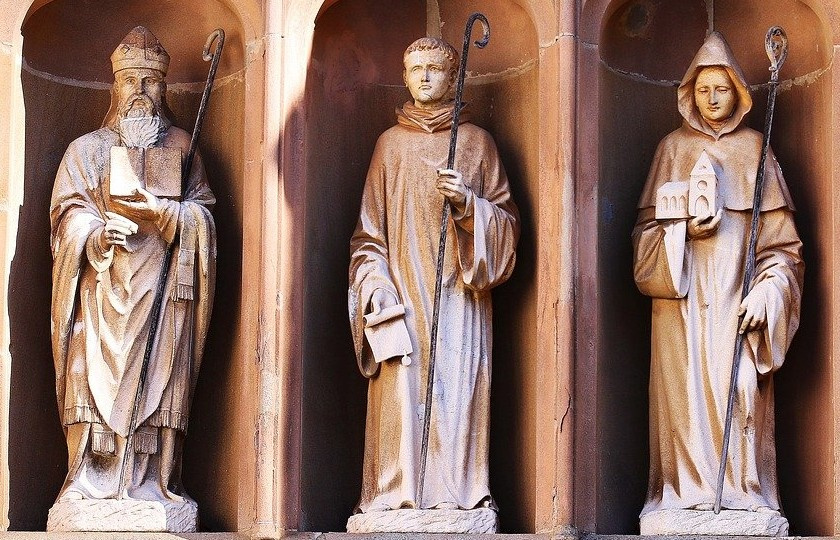
The IICS Archive is a place to find information on past events and lectures held by the IICS, now recorded on our YouTube channel and summarized in our Fall 2020 Newsletter.
IICS YouTube Channel
To promote interdisciplinary research and contribute to historical, intellectual, philosophical and theological understandings of Catholicism as religion, social movement, body of thought, and material culture, we have established a lunchtime and evening lecture series featuring a wide range of speakers, which we have now archived on our YouTube channel.
We hope our YouTube channel will not only be seen as an archive of past events, but as a tool for homeschooling children during Covid-19 using the Grow in Love RE programme, and a resource for living with lockdown, by creating a vlog series to encourage positive thinking during a time of change and uncertainty.
You can access the IICS YouTube channel here.
IICS Newsletter
We are now creating a newsletter on the activities of the IICS.
MIC Online Retreat at Glenstal Abbey
On 20 June 2020, the Feast of Immaculate Heart of Mary and World Refuge Day, MIC held an online retreat at Glenstal Abbey and Mary Immaculate College. This retreat welcomed participants from a variety of faith and belief traditions.
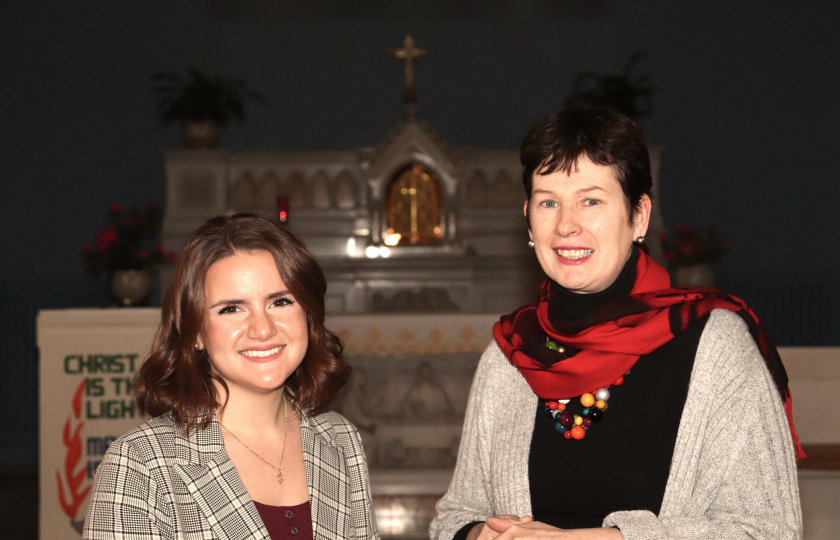
IICS Feature in I Love Limerick Publication
The 2019 article by Limerick publication, I Love Limerick, written about the IICS can be accessed here.
- About
- People
- Research & Opportunities
- 2025 IICS Lecture Series & Events
- Past IICS Lecture Series & Events
- Blog
- YouTube Channel & Newsletter



